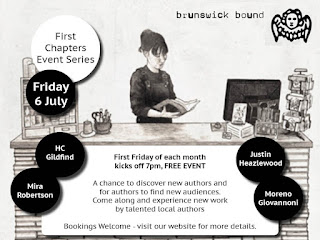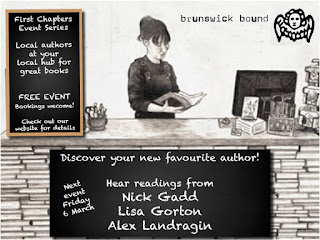First Chapters Q&A with Paul Fleckney
Paul Fleckney is a writer, educator and
researcher. He teaches urban planning at the University of Melbourne. Paul grew
up in England and became fascinated in rave during 1988’s ‘Second Summer of
Love’. Too young to experience the acid house explosion firsthand, he read the
hysterical headlines in the press and watched the pantomime of moral panic play
out on TV. A keen techno music fan, Paul remembers well the bitter
disappointment he felt when he first stepped inside a nightclub. He pronounced
rave dead, buried beneath a thousand commercial ‘choons’ and a sticky
beer-stained carpet. But then a conversation with Melbourne DJ Brewster B. in
2013 renewed his interest in rave. As Paul listened to Brewster’s fascinating
and outrageous stories, he realised that through writing about rave he could
share in a subculture that had not only eluded him for 25 years but also had
transformed the lives of thousands of young Melburnians.
Paul Fleckney will be reading from Techno Shuffle: Rave Culture and the Melbourne Underground at First Chapters on Friday 6 September.
1.Brunswick Bound has asked you to read a piece from your published
work. Tell us what we can expect from the piece you have chosen?
An attempt to bring 90's
rave culture in Melbourne to life through candid anecdotes, cultural analysis
and humour.
2.How would you describe
the kind of books that you write?
I’ve only written one book…
but in terms of the wider context in which I write– which includes poetry,
short stories and non-fiction– then I’d say that I’m driven to give voice to
the oppressed.
3. What was the first book
that you read (or had read to you) that left an impression on you?
The Adventures of Robinson
Crusoe by Daniel Defoe, retold by Angela Wilkes (Usborne, 1981). When I was
five, I fell off a wall on the way to my after-school church group and cut my
forehead. My teacher took me to surgery to get stitched up and gave me this
book afterwards for ‘being so good’… I must have read the book a hundred times.
I desperately wanted to be Robinson Crusoe and the fantasy of being marooned by
myself on a desert island has never quite left me.
4. Do you believe that
books should answer life’s big questions?
Yes. Not only answer, but
ask them as well.
5. Do you have any writing
quirks?
Right now, my writing quirk
is not writing.
6. What is your favourite word or phrase?
Right now, it’s ‘the lathe
of heaven’. For the Ursula Le Guin novel, the Lao Tzu quotation, the
philosophical significance, and the poetics of the phrase.
7. What have you found most surprising about publishing a book?
That the writing self and
the publishing self are fundamentally incompatible.
8. What is the question
that you hope never to be asked in an author Q&A?
What are you working on
now?
9. What question do you
hope you will be asked and why?
Who are your favourite
authors and/or poets? So that I can pay homage to my literary role models and
to potentially bring their work, which has been transformative to me, to a new
audience.
10. Which author that you
have read do you think should be better known or more widely read?
Erich Fromm. So much of
what I read in contemporary psychology, philosophy, politics, and self-help
books has its roots in Fromm’s work from the mid 20th century. He
was remarkably prescient about the effects of capitalism and post-industrialism
on the human psyche.
Find out more about the First Chapters event series on the Brunswick Bound website.





Comments
Post a Comment